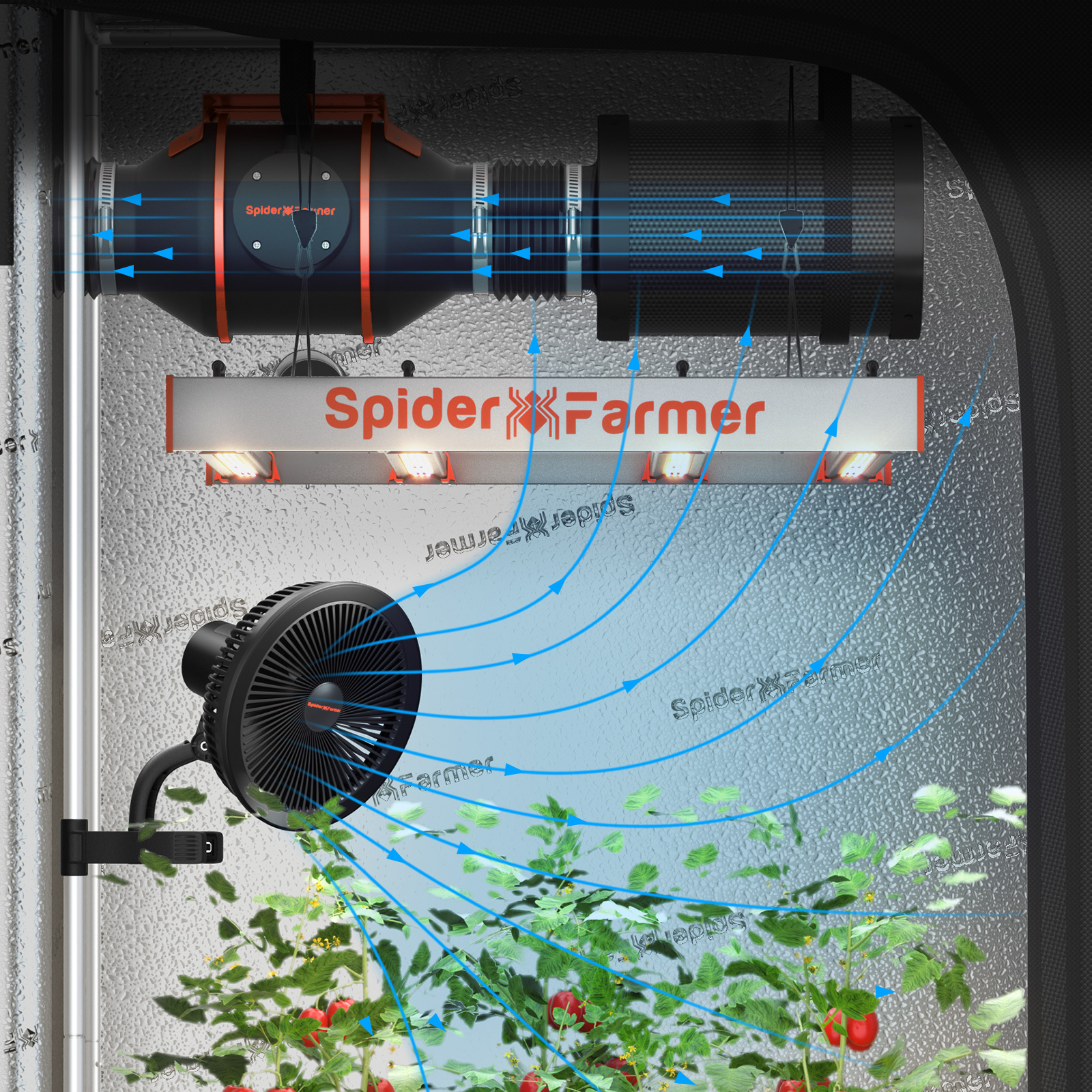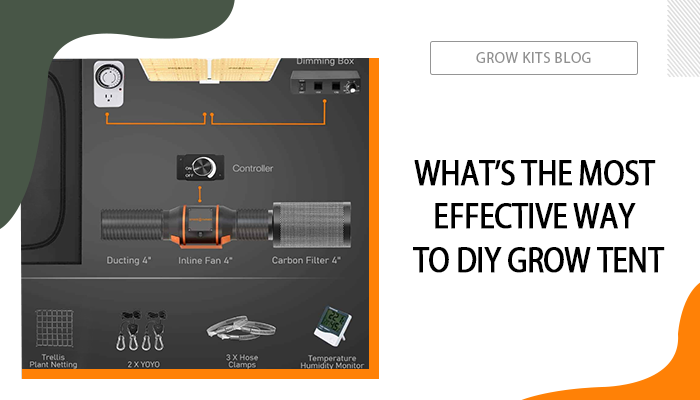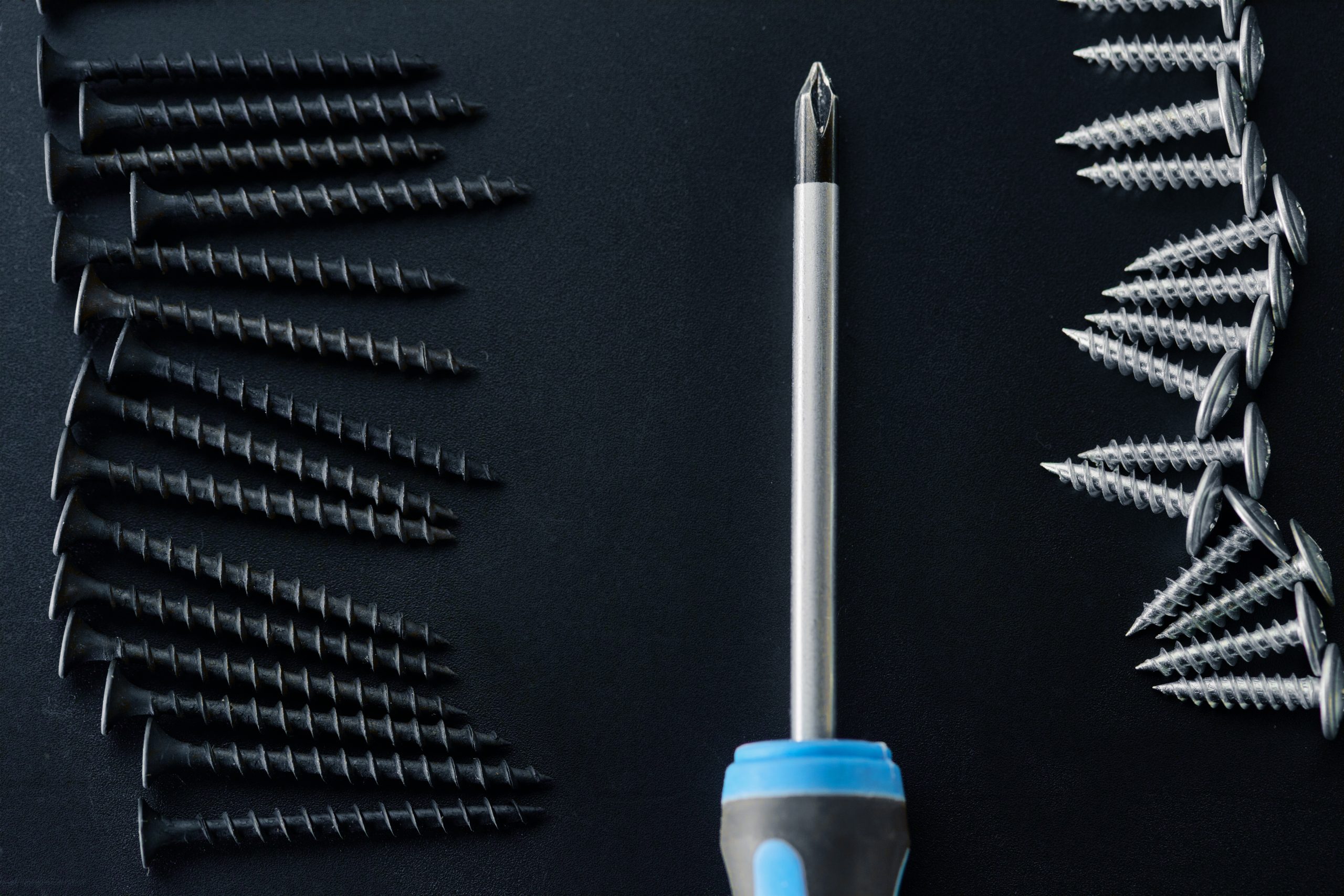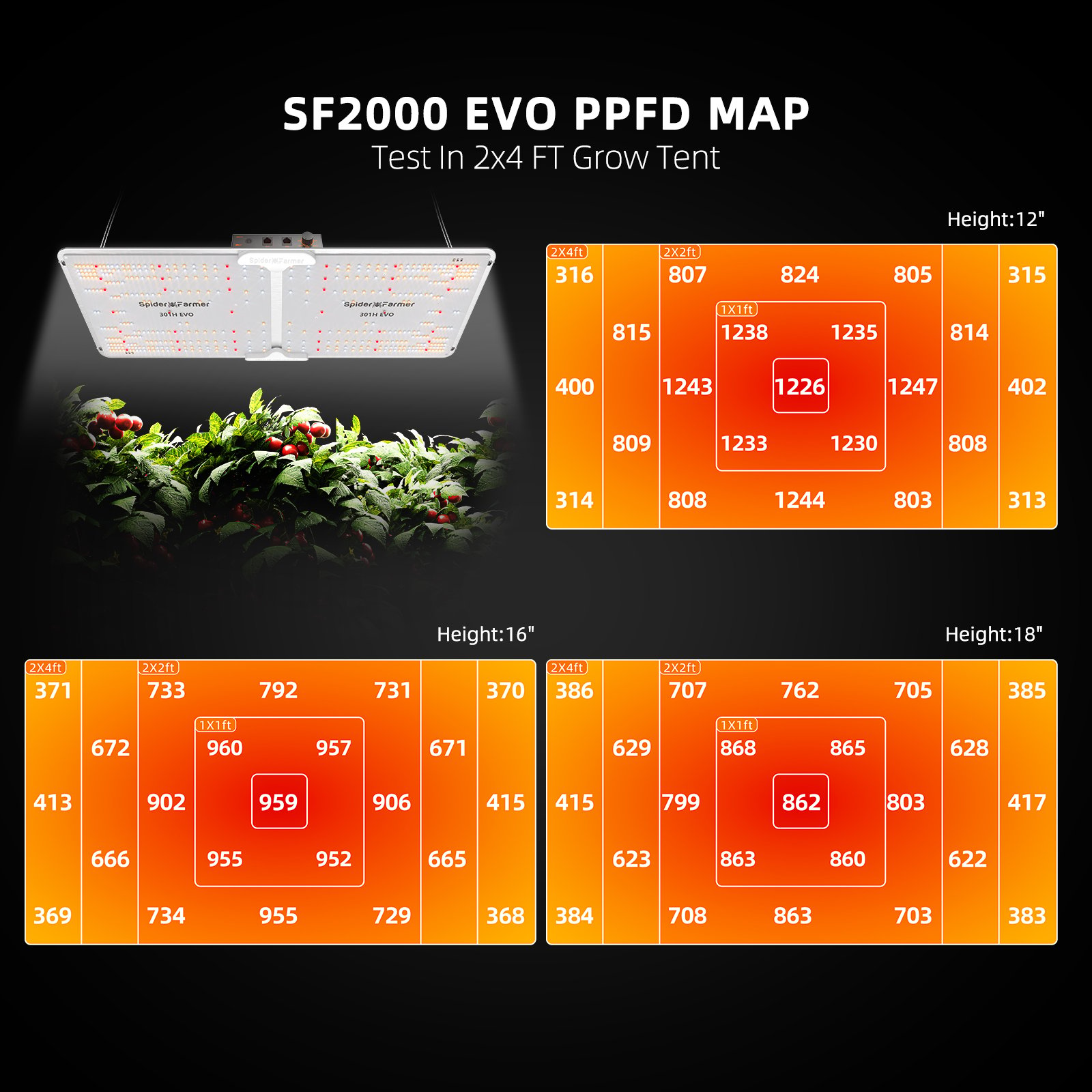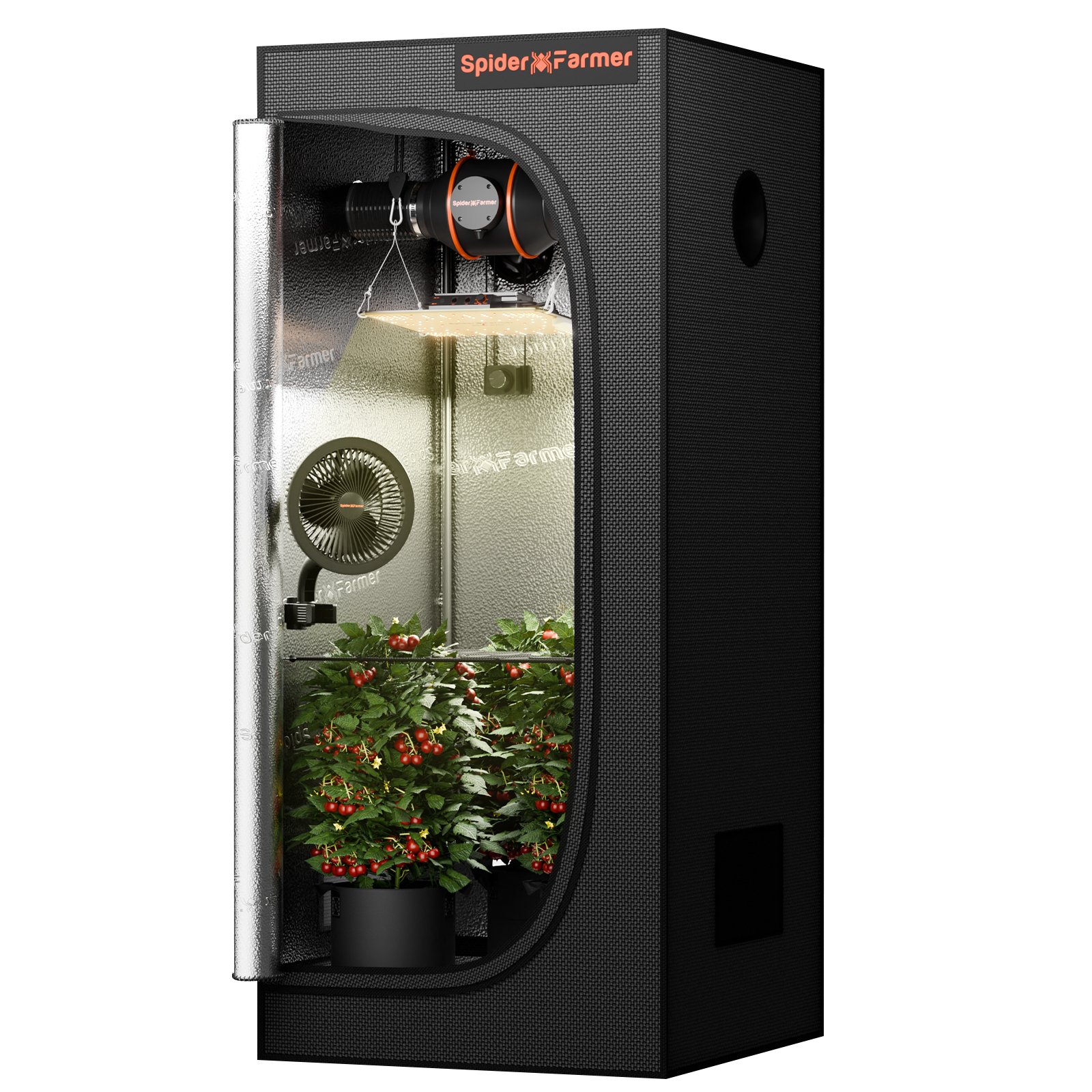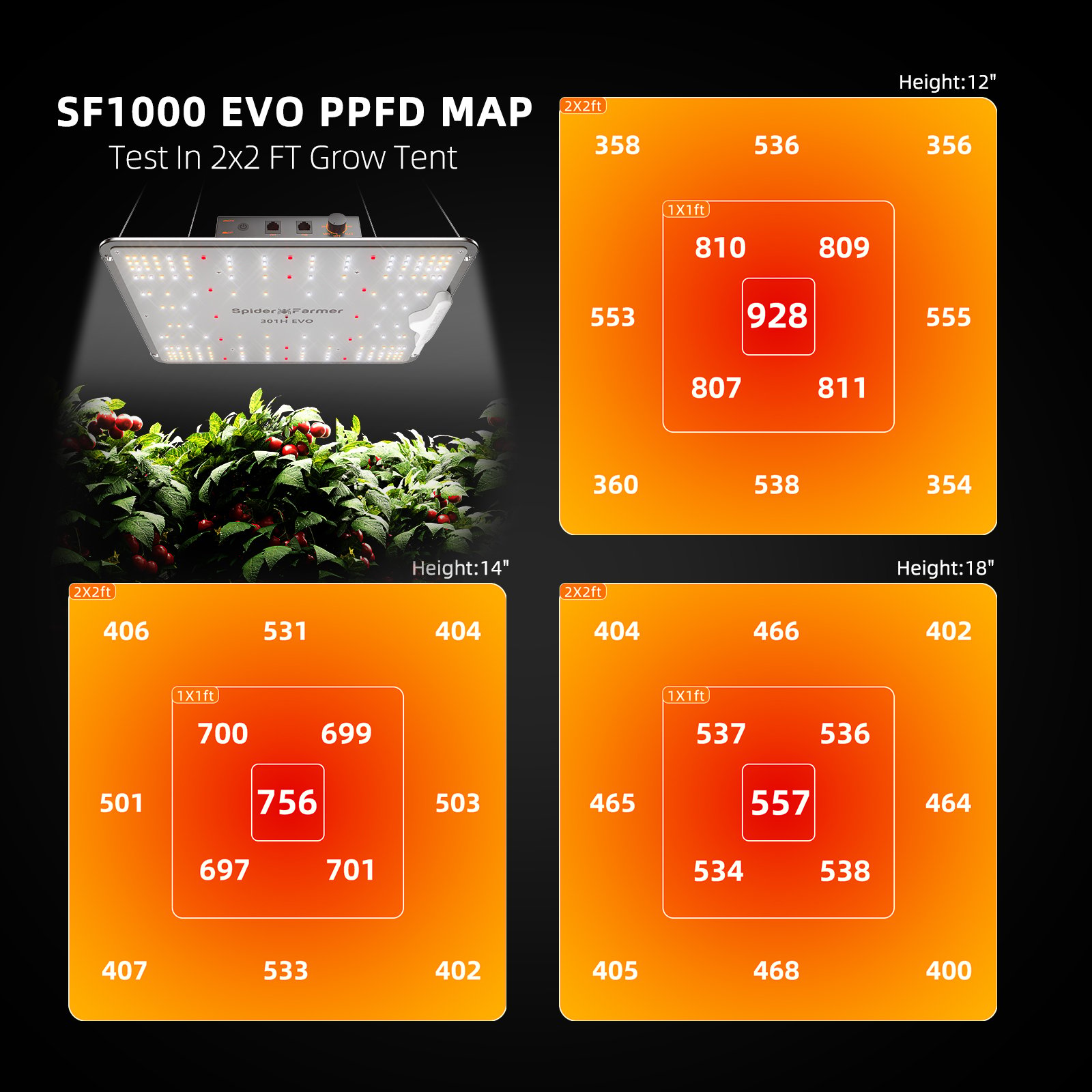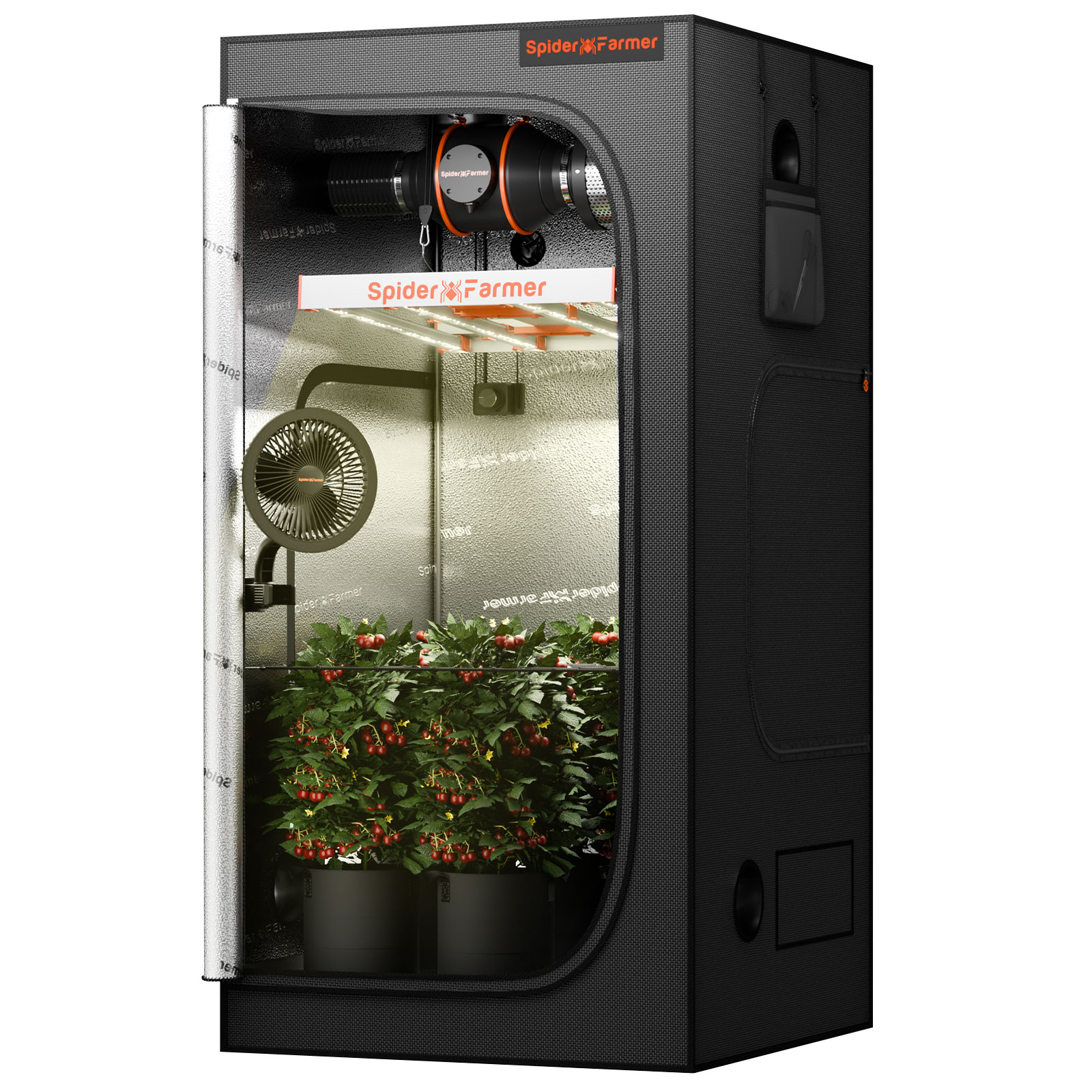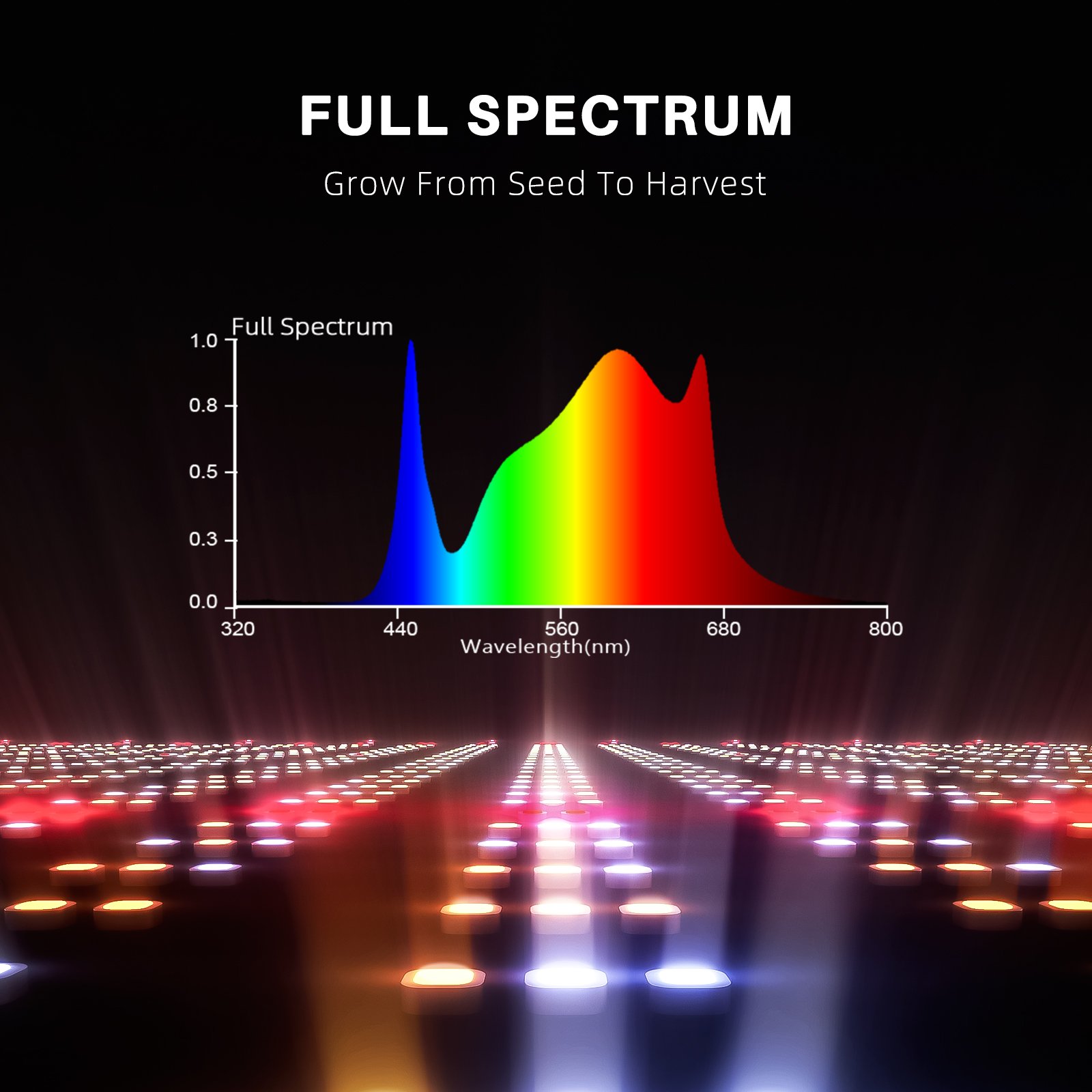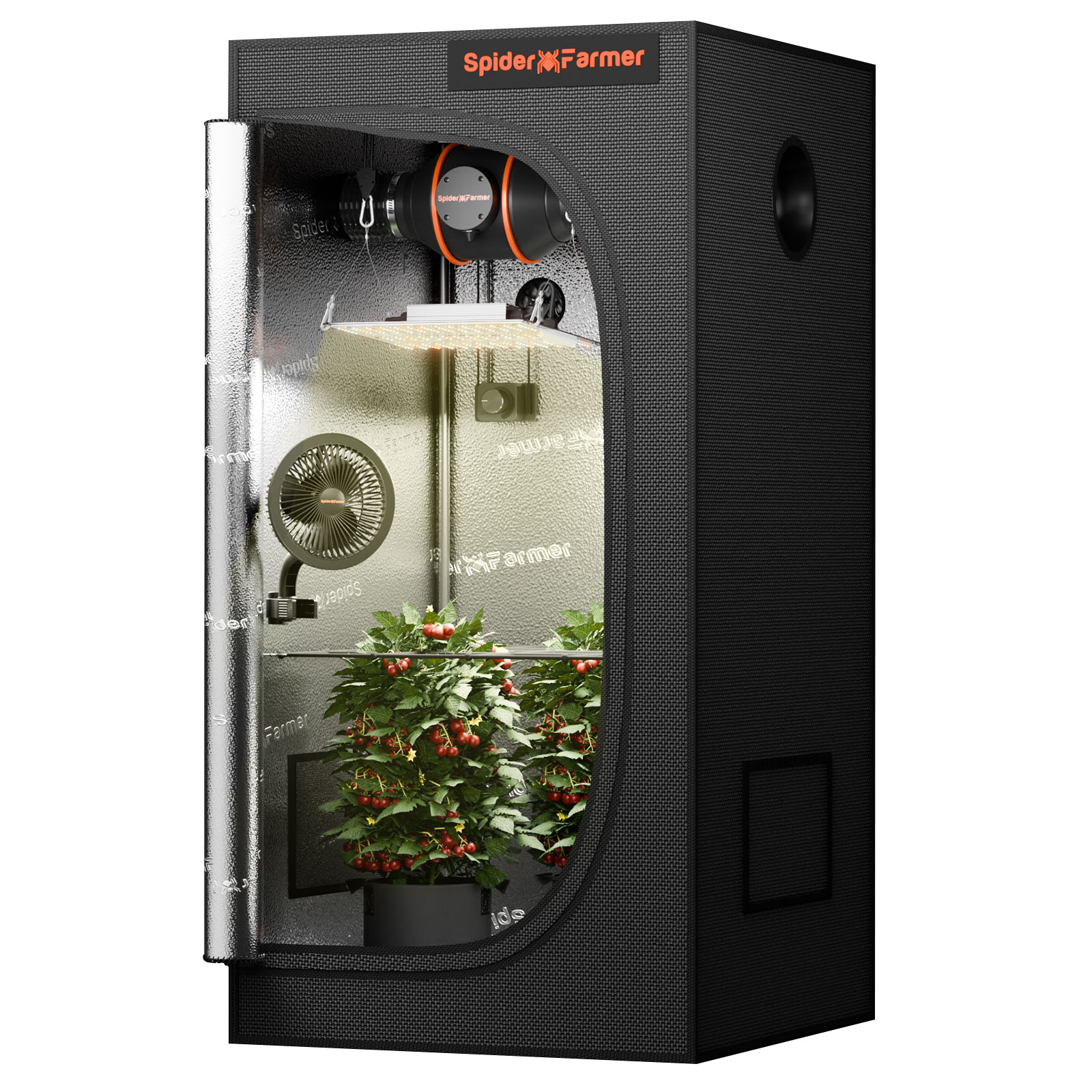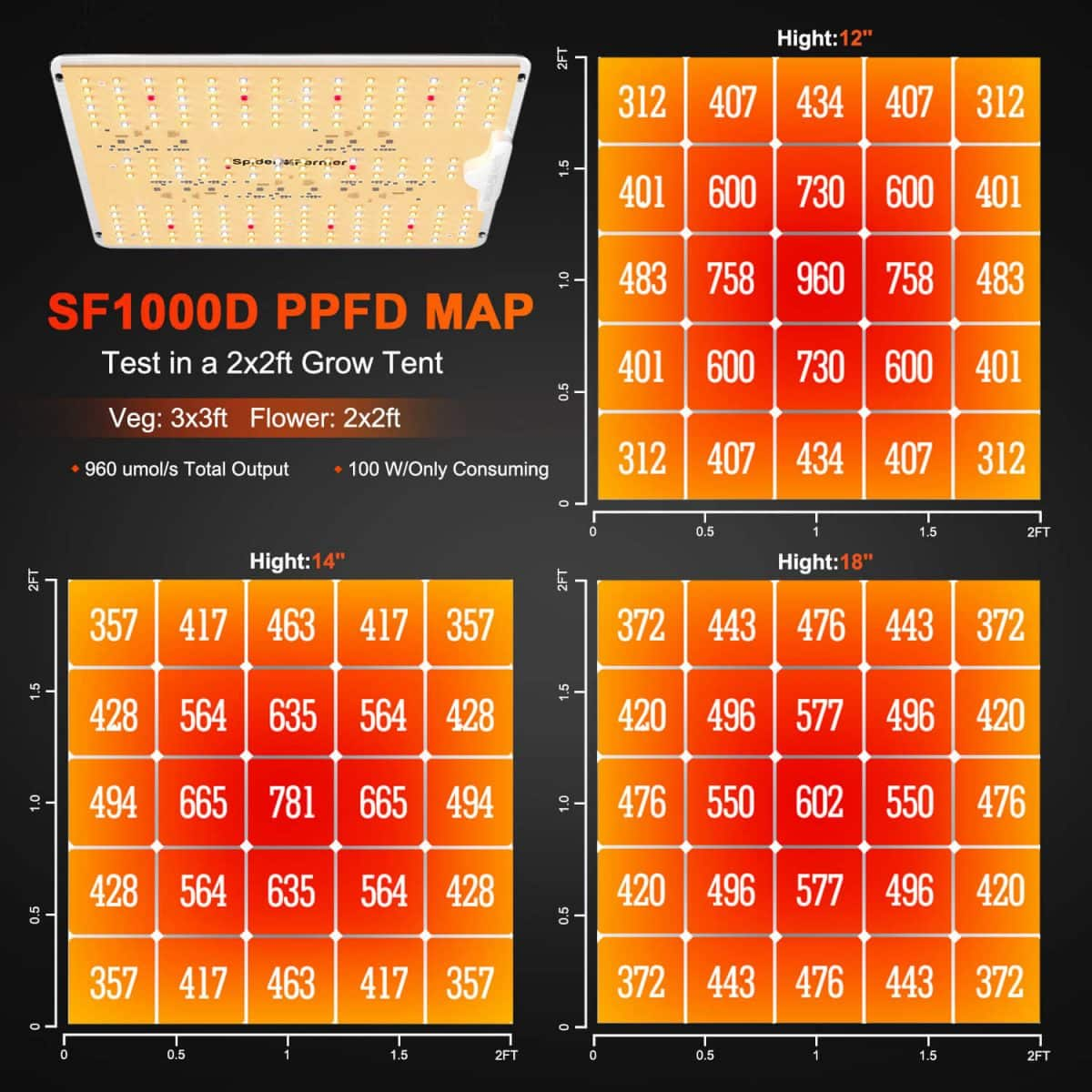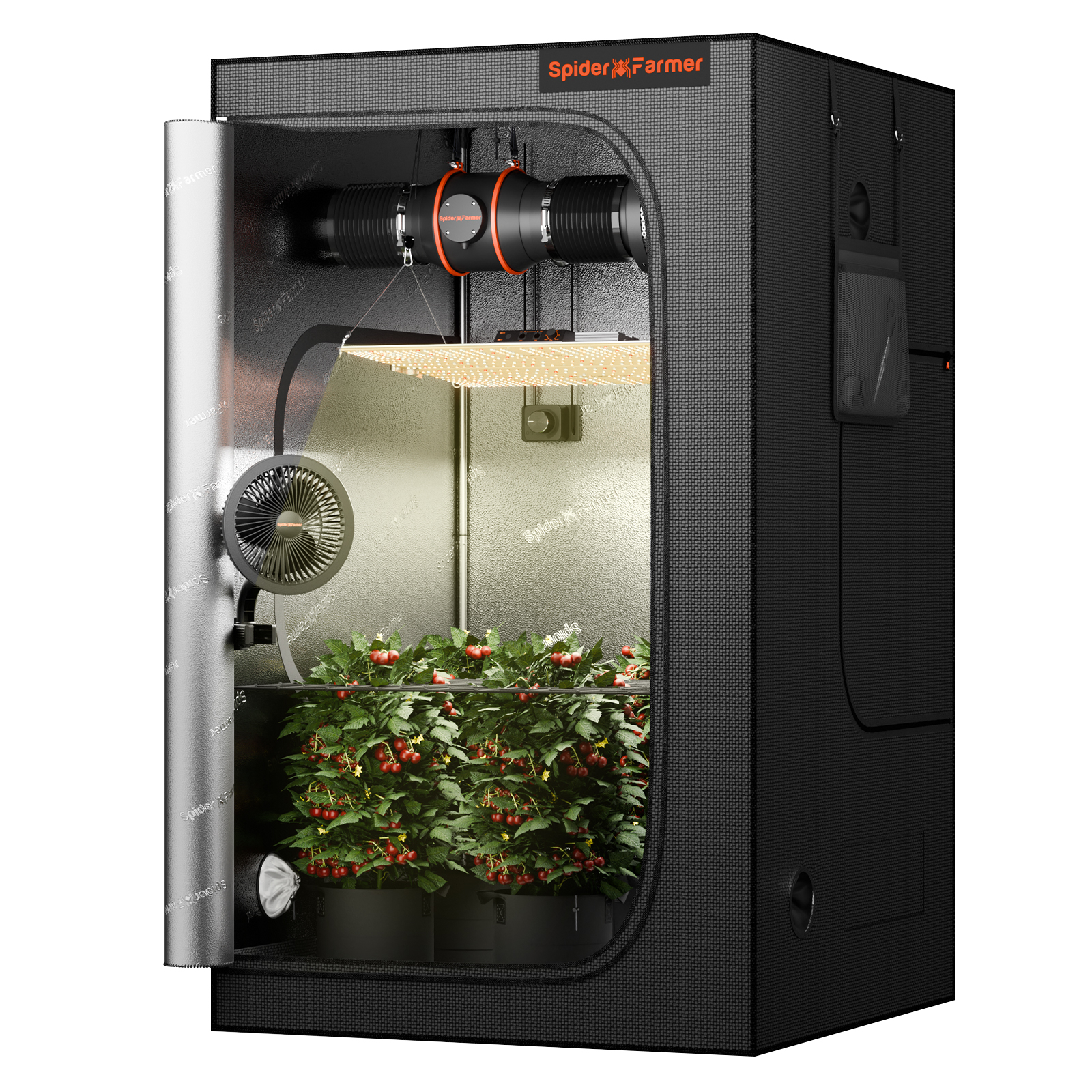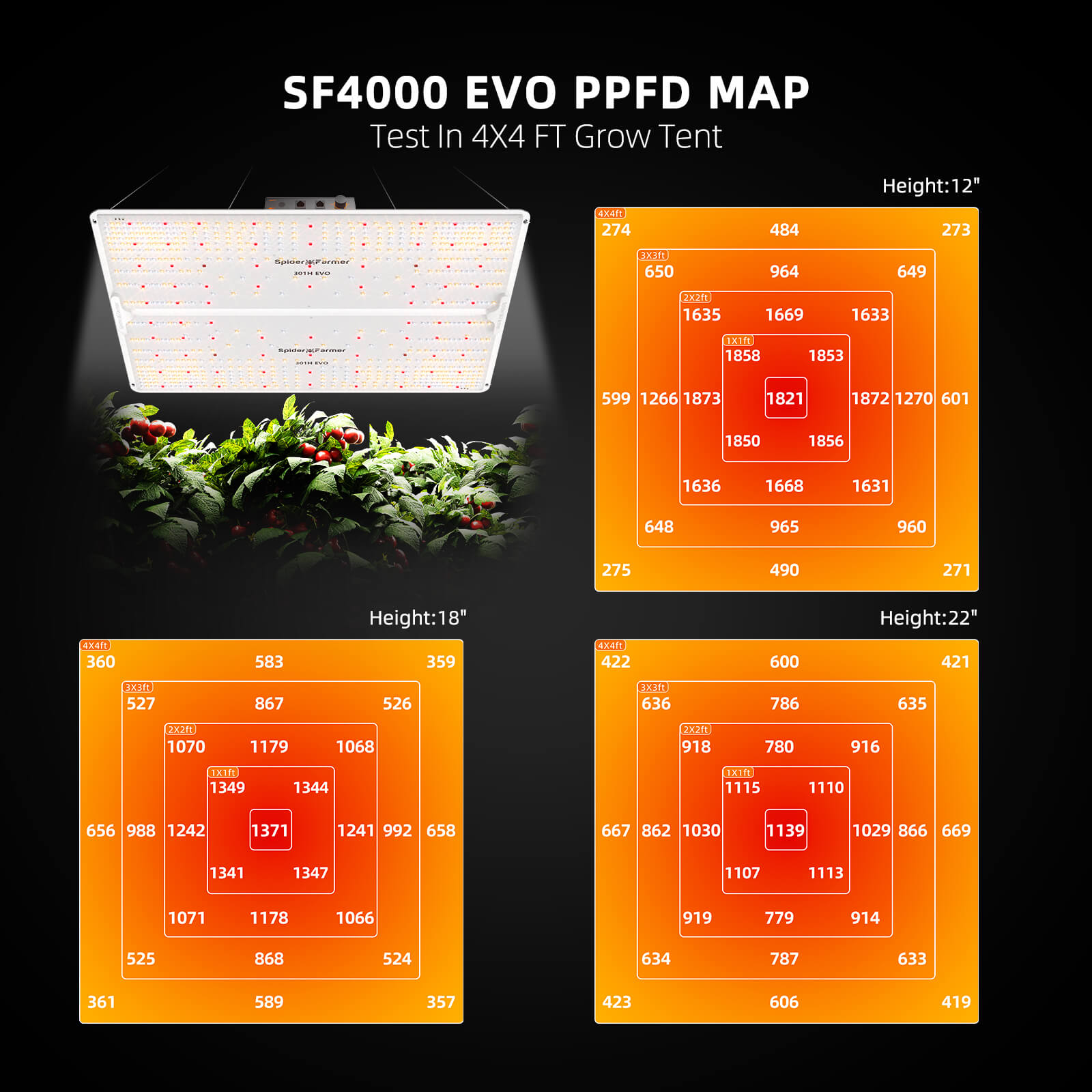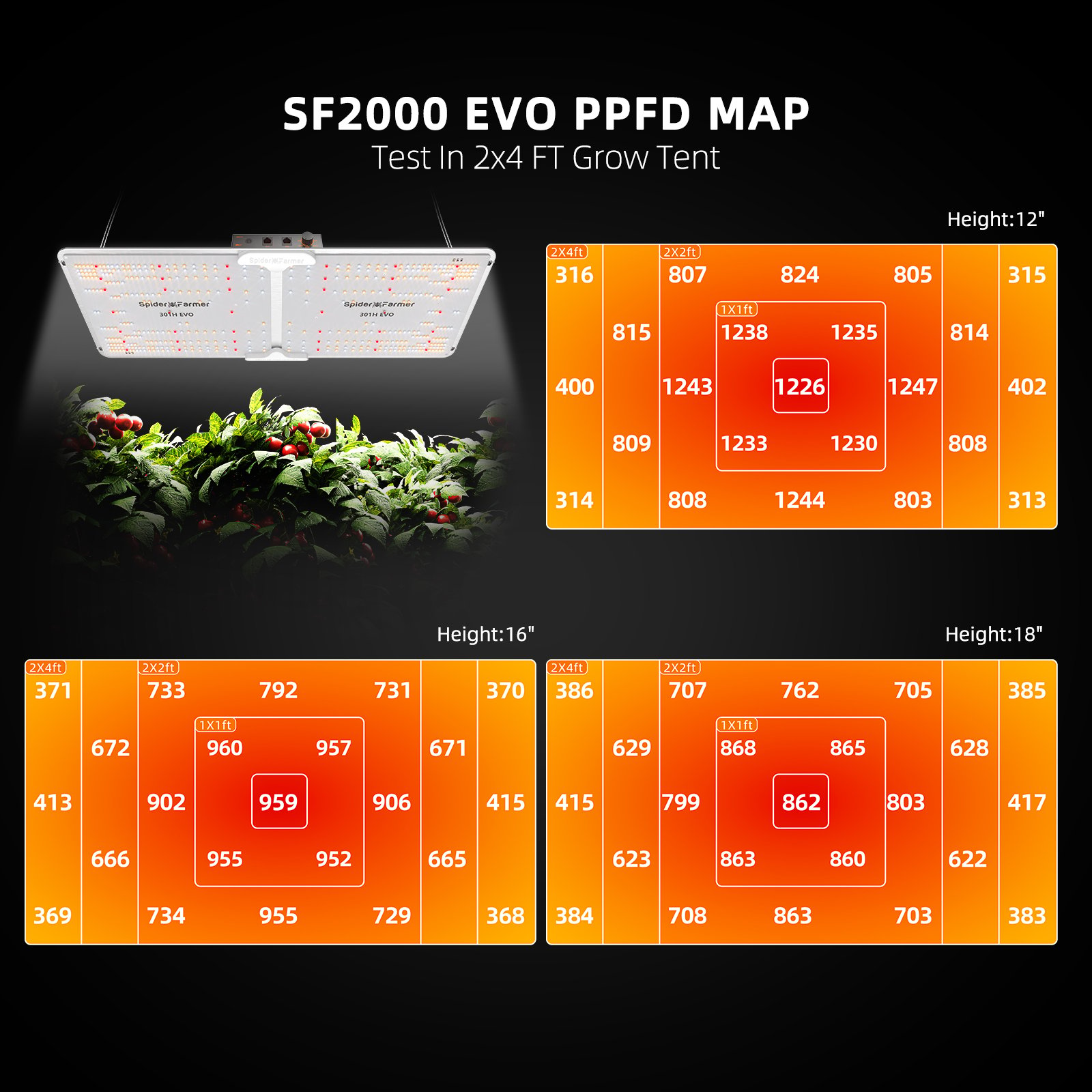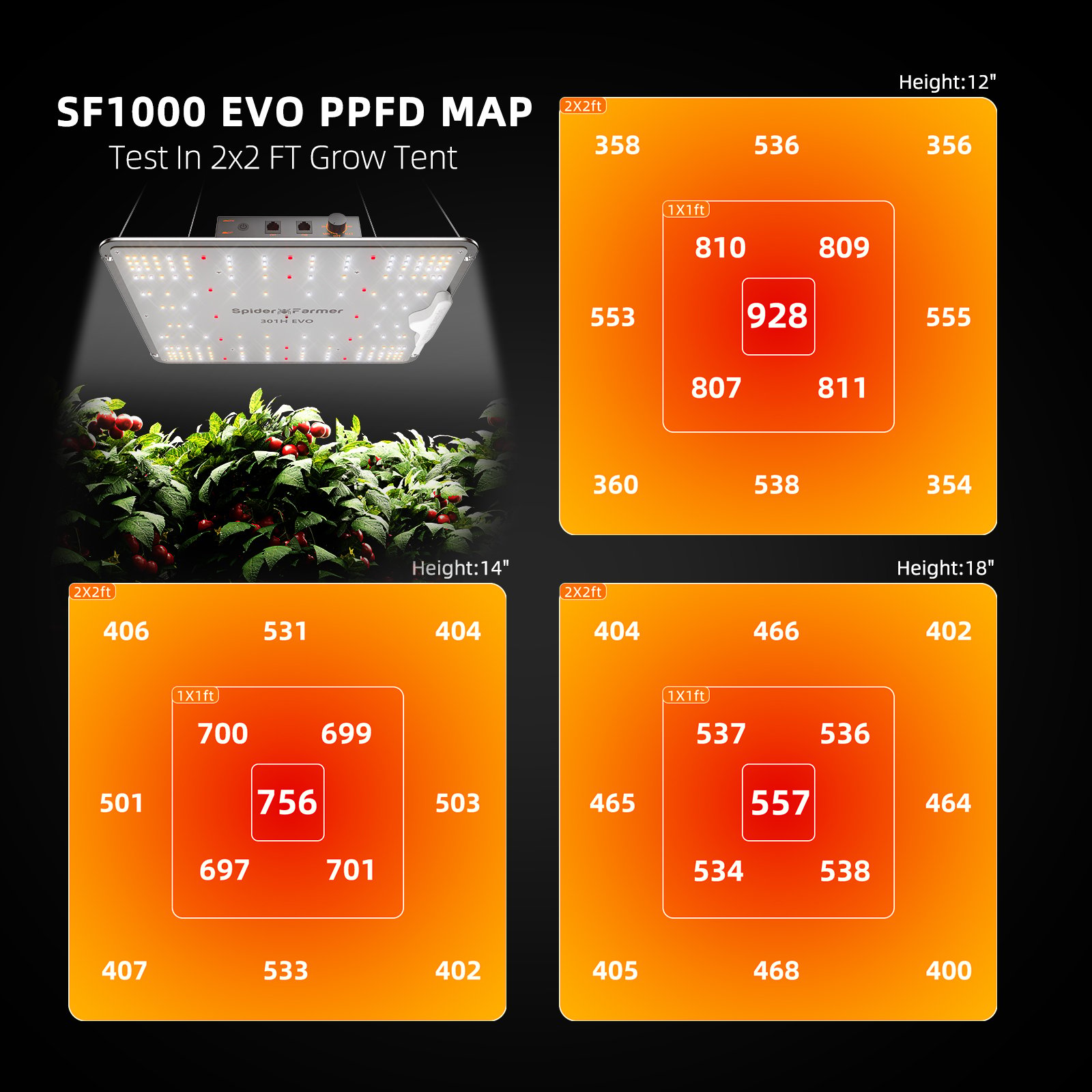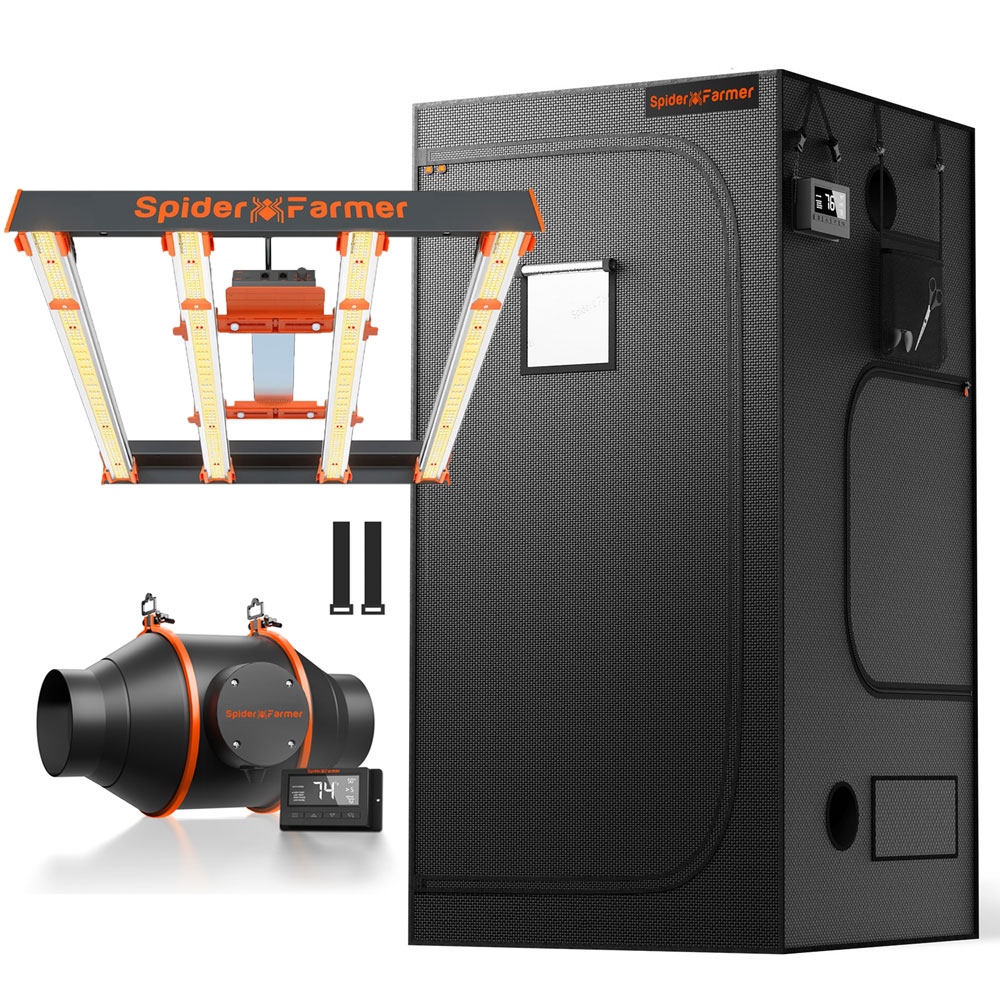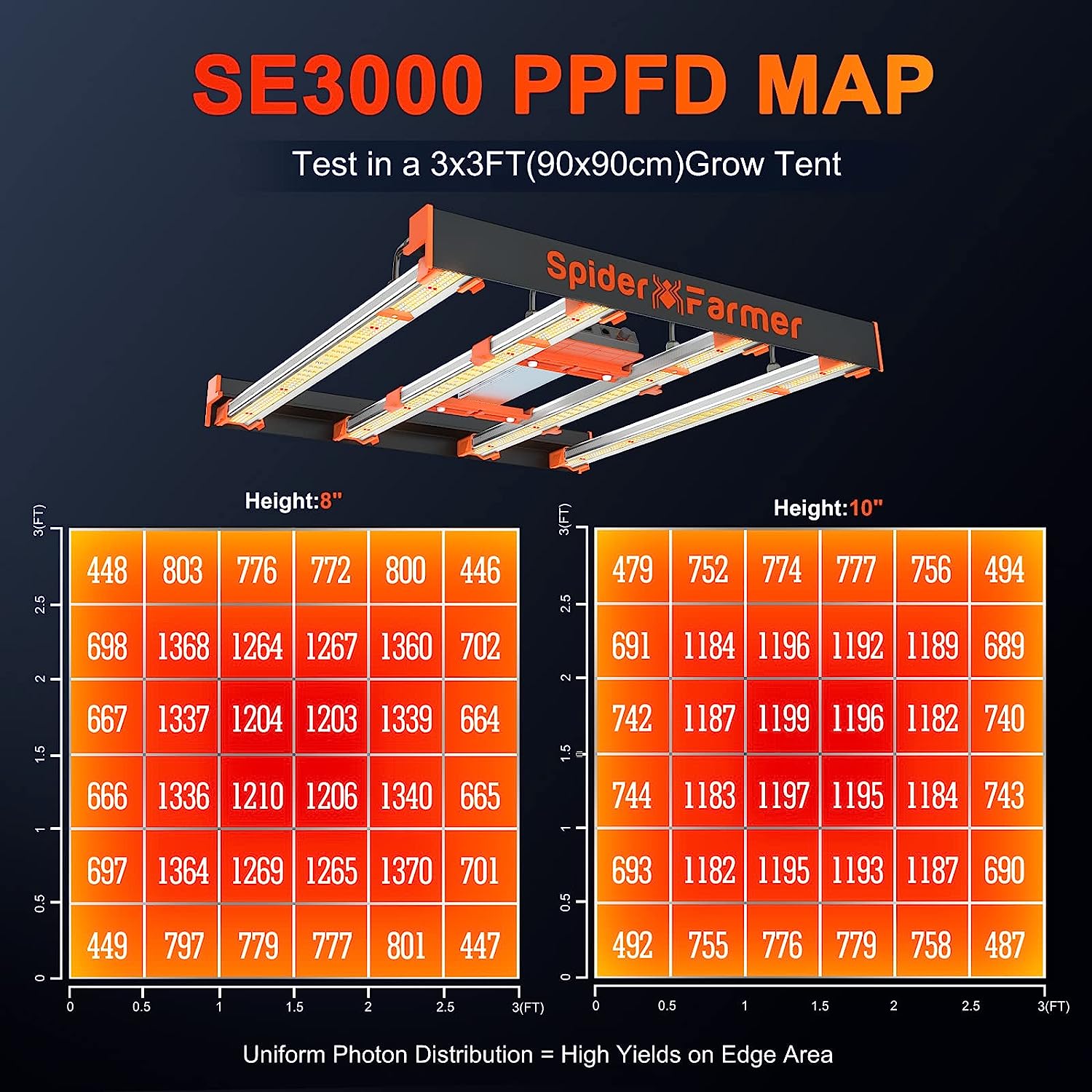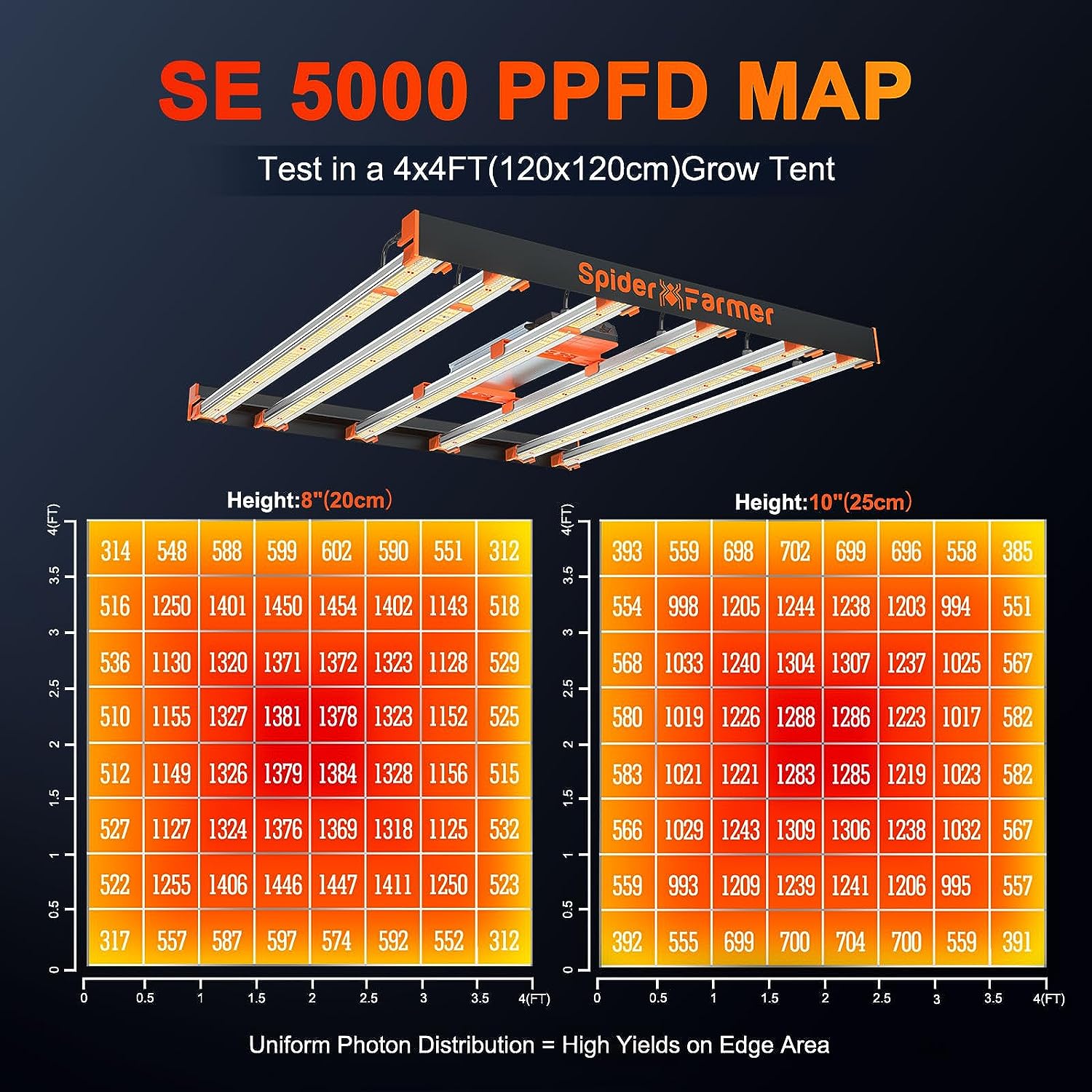DIY Grow Tent: Materials & Step-by-step Tutorial
If you have limited outdoor space, extreme weather conditions, or the desire for year-round cultivation, a grow tent is all you need. However, for growers, particularly beginners, whether or not to invest in a pricy grow tent remains uncertain. The good news is that you can always DIY grow tent before purchasing them from the store. Give it a try and hopefully, your handwork won’t fail you. Read on to see how to build a grow tent from scratch at a very low cost.
Table of Contents
Materials and Tools Needed for DIY Grow Tents
Trust me, building a grow tent on your own is much easier than you expect. But first things first, you have to grab some essential materials to prepare for grow tent setups. Having these materials and tools ready will ensure a smoother setup process for your DIY grow tent.
Frame Materials
- PVC pipes: Lightweight, affordable, and easy to work with, the pipes serve as the primary structure for the DIY grow tent, providing stability and support for the covering material and other components.

- Corner connectors or brackets: These hardware pieces are used to join and secure the PVC pipes at the corners of the frame. They ensure stability and help maintain the desired shape of the DIY grow tents.
- Screws or adhesive: Screws provide a strong mechanical bond between the PVC pipes and the corner connectors or brackets.
Covering Materials
- Reflective material (e.g., Mylar, reflective foil): Basically all credible grow tent manufacturers, such as Spider Farmer, use reflective material to maximize light absorption and ensure even light distribution.
- Blackout fabric or light-proof material: This material is employed to block out external light sources and prevent light leaks.
- Zipper for access: Zippers are used to create access points in the covering material, allowing growers to easily enter the grow tent for maintenance and inspection.
Ventilation & Airflow Systems
- Inline fans: The inline fans are installed within the grow tent to promote air circulation and exchange, helping to maintain proper grow tent temperature and humidity, and CO2 levels for healthy plant growth.
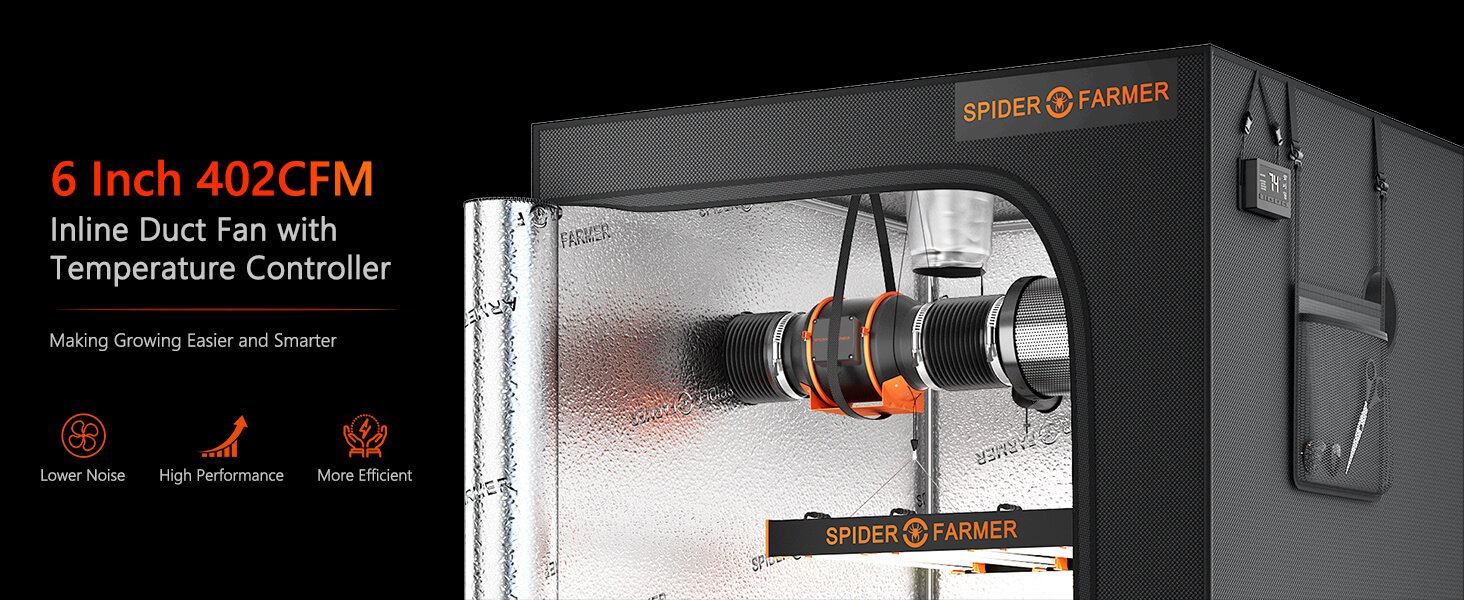
- Carbon filters: Carbon filters are utilized in conjunction with the inline fans to effectively eliminate odors and filter out airborne contaminants, so you don’t have to worry about how long does the smell of weed last in a room.
Lighting
- Grow lights: Grow lights are essential artificial light sources used to provide all necessary spectrum and intensity of light required for plant photosynthesis and growth. LED grow lights, fluorescent, and HID lights (particularly HPS grow lights) are common options used in indoor gardening.
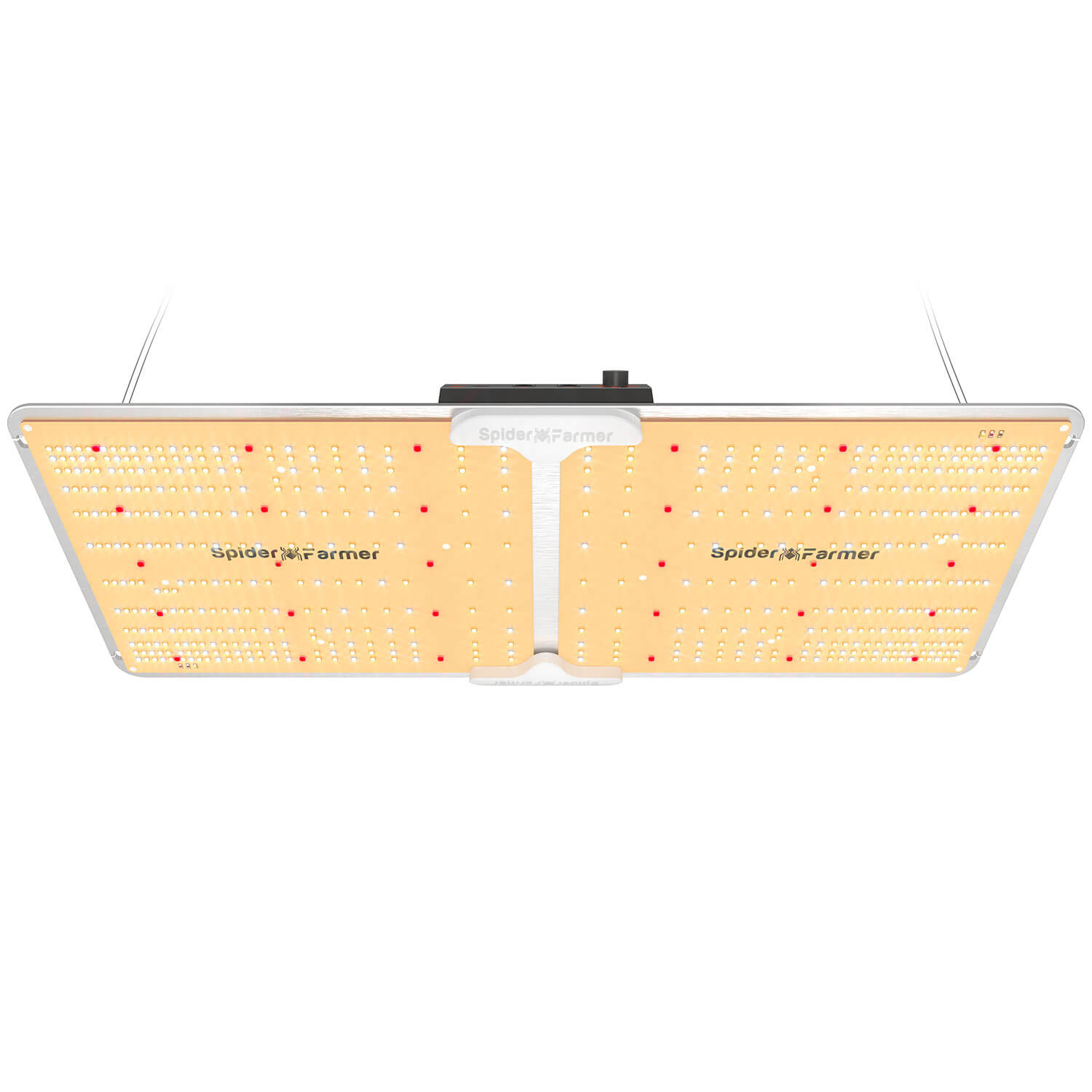
- Light hangers or hooks: With these, you can easily adjust the height and position of the lights to meet the specific needs of the plants.
Handwork Tools
Apart from the materials of a DIY grow tents, you’ll also need essential handwork tools to assemble them. Common tools include duct tape, a screwdriver or drill, a hand saw, etc.
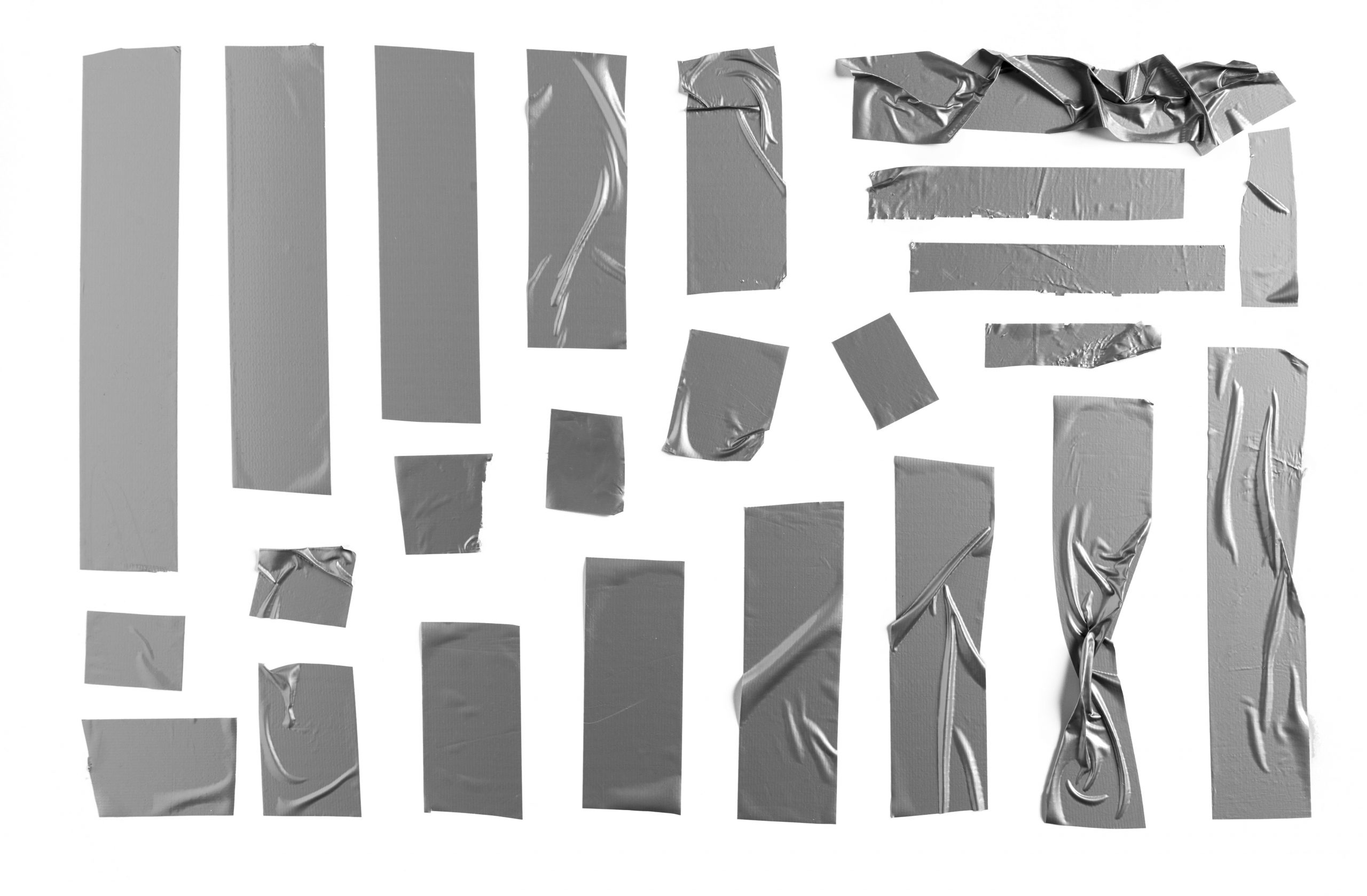
In addition, there are some other accessories that will definitely glorify your DIY grow tent but they are not actually must-haves if you are just starting to grow plants indoors. For example, thermometers, hygrometers, power strips, heat mats for plants, and water-resistant seed starting trays.
Step-by-Step Guide to Building a DIY Grow Tent
With all peripherals available, let’s start to build the tent step by step!
Step 1. Determine the Location
Before anything else, you should be aware of where to place the homemade grow tents. That’s because the area determines how large your grow tent should be, or vice versa. You can either put the small grow tent in your living room or the bedroom.
Step 2. Construct the Frame
When using PVC pipes, measure and cut the pipes to the desired dimensions using a hacksaw or PVC pipe cutter. If you have no clue how many pipes to buy, just remember for a standard-sized grow tent, you will need 16 straight pieces of pipe: 4 for the vertical supports (at least 1.5m long), 4 for the base, and 8 for the roof.
Once the PVC pipes are cut to size, connect them using corner connectors or brackets and secure them with screws or adhesive. Make sure that the roof section includes a cross-fitting in the middle to provide additional stability for hanging lights, fans, etc.
Step 3. Cover the Frame
As recommended above, a reflective material such as Mylar or reflective foil is your best option to cover the tent. You should measure the dimensions of the frame and cut the reflective material to fit the walls and ceiling of the grow tent.
If desired, you can even cover the reflective material with blackout fabric or light-proof material to prevent any light leaks. Attach the fabric using adhesive or by sewing it onto the edges of the reflective material.
Step 4. Install Ventilation Systems
Hang the inline fans within the grow tent, generally near the top of the grow tent, to ensure proper air circulation. You may also connect carbon filters to the inline fans to remove odors and purify the air. Fortunately, the 6-inch inline fan from Spider Farmer comes with built-in carbon filters that save you from buying additional materials.
Then, you can attach ducting to the inline fans, ensuring a tight fit. Run the ducting to the desired air vents or duct vents positioned for both intake and exhaust.
Step 5. Set up Lighting
- Select the appropriate grow lights: Among all types of grow lights, the top recommendation goes to the LED grow light, thanks to its high efficiency and full-spectrum control. At Spider Farmer, we have the Spider Farmer SF1000 that’s able to cover all required growth light spectrums for your plant growth.
- Install light hangers or hooks: Attach light hangers or hooks to the frame of the grow tent, ensuring they can support the weight of the lights.
- Mount the lights: Hang the grow lights from the hangers or hooks at the desired height. Connect the lights to a power source using appropriate cables or extension cords.
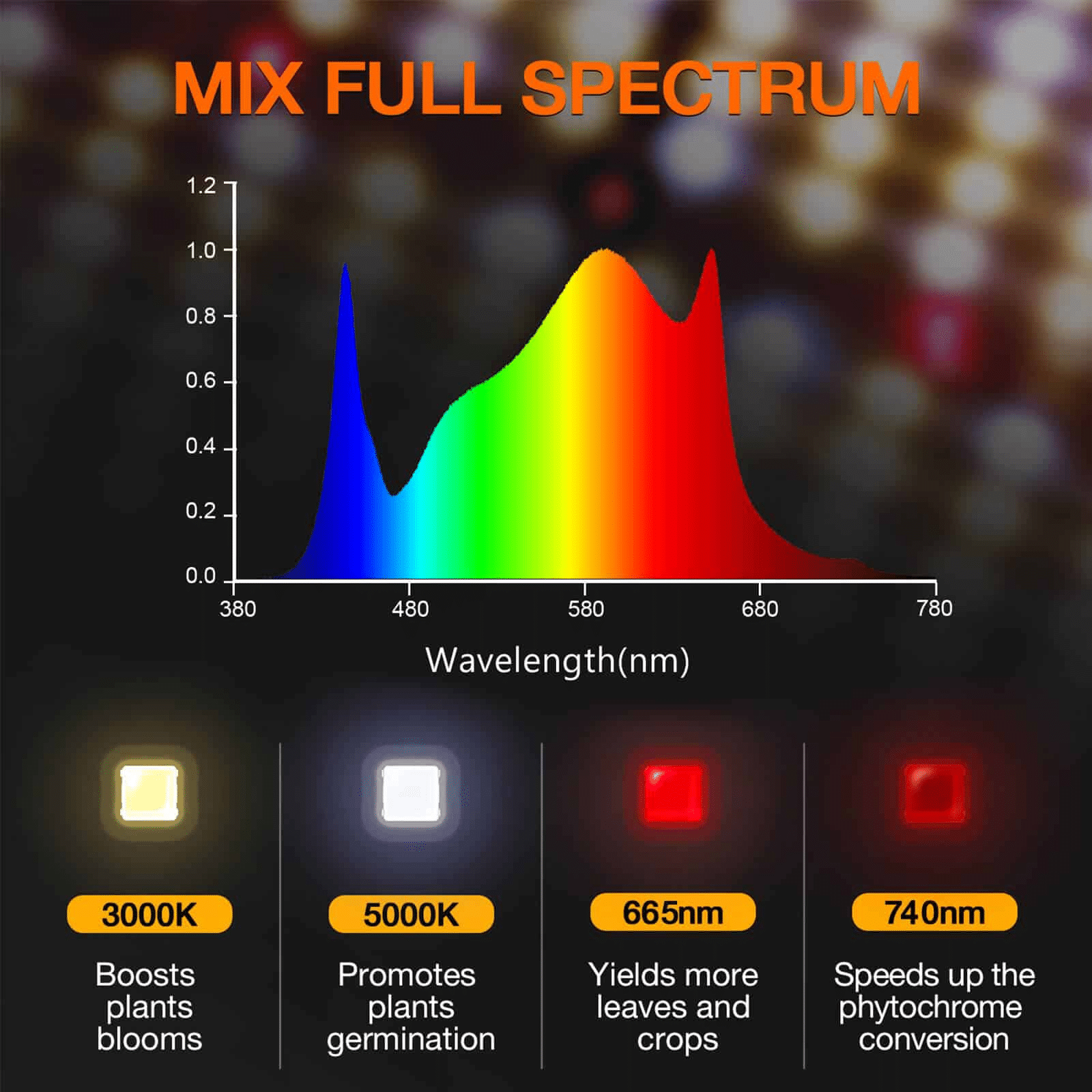
Read more: LED grow lights distance from plants
Step 6. Seal and Secure the Grow Tent
- Prevent light leaks: Use duct tape or foil tape to cover any gaps or seams in the reflective material, ensuring no light can escape or enter from outside the tent.
- Fasten and secure components: Zippers from most manufacturers are reported vulnerable, therefore, it’s suggested to use zip ties or wire to fasten and secure cables, equipment, and other components within the grow tent, so your DIY grow tents can be more long-lasting.
With all being done, you are only one step before introducing plants, which is to test all the systems, including lighting, ventilation, and temperature control. Make necessary adjustments to ensure everything is functioning properly, then you can start growing indoor plants with your homemade grow tent!
Reasons to Choose DIY Grow Tents
With so many high-quality and powerful indoor grow tent kits, for example, the various sizes you can check below, why bother to build homemade grow tents?
PRE-ORDER丨2024 Upgrade Spider Farmer® 2’x4’ Complete Grow Tent Kit丨SF2000 301H EVO Full Spectrum LED Grow Light丨6” Clip Fan丨4” Ventilation System with Temperature and Humidity Controller
●Suitable for housing 2 to 4 plants throughout their full cycle. Alternatively, it can accommodate 6 to 8 smaller plants during the vegetable stage.
●Cost-effective and hassle-free way to create an indoor grow room.
●Eliminates the guesswork and stress of determining the right equipment setup for your tent.
●Provides a complete setup, saving you time and effort.
What’s included in our carefully selected package:
1 × SF-2000 301H EVO Full Spectrum LED Grow Light, 1 × 2’X4’X6′ Grow Tent, 1 × 4” Inline Duct Fan, 1 × 4” Carbon filter, 1 × 6” Clip Fan, 1 × Flex Air Aluminum Ducting, 3 × Hose Clamps, 1 × Fan Smart Controller, 1 × Timer, 4 × 5 Gallon Grow Bags, 1 × Trellis Plant Netting, 2 x Coner Shelves, 2 x Duct Filter Vent Cover, 2 × Adjustable Rope Clip Hangers
For more details on why we chose these specific devices, check out the product descriptions.
2024 Spider Farmer® 2’x2′ Complete Grow Tent Kit丨SF1000 301H EVO Full Spectrum LED Grow Light丨4” Ventilation System with with Speed Controller
●Our 2.3’x2.3’x5.2′ grow tents are ideal for beginner growers or those with limited space. They are slightly larger than standard 2’x2′ tents, great for mother plants or growing 1-2 small to medium sized plants full cycle.
●Cost-effective and hassle-free way to create an indoor grow room.
●Eliminates the guesswork and stress of determining the right equipment setup for your tent.
●Provides a complete setup, saving you time and effort.
What’s included in our carefully selected package:
1 × SF-1000 301H EVO Full Spectrum LED Grow Light, 1 × 2.3’x2.3’X5.2′ Grow Tent, 1 × 4” Inline Duct Fan, 1 × 4” Carbon filter, 1 × 6” Clip Fan, 1 × Flex Air Aluminum Ducting, 3 × Hose Clamps, 1 × Fan Speed Controller, 1 × Thermometer and Hygrometer, 1 × Timer, 4 × 5 Gallon Grow Bags, 1 × Trellis Plant Netting, 2 x Coner Shelves, 2 x Duct Filter Vent Cover, 2 × Adjustable Rope Clip Hanger
For more details on why we chose these specific devices, check out the product descriptions.
2024 Spider Farmer® 3’x3′X6′ Complete Grow Tent Kit丨G3000 Full Spectrum LED Grow Light丨6” Clip Fan丨4” Ventilation System with Speed Controller
●Our 3′ x 3′ grow tents are perfect for growing 4-6 full-sized plants from the vegetative stage to flowering. The compact design is ideal for growers with limited space.
●Cost-effective and hassle-free way to create an indoor grow room.
●Eliminates the guesswork and stress of determining the right equipment setup for your tent.
●Provides a complete setup, saving you time and effort.
What’s included in our carefully selected package:
1 × G3000 300W Full Spectrum LED Grow Light, 1 × 3’x3’X6′ Grow Tent, 1 × 4” Inline Duct Fan, 1 × 4” Carbon filter, 1 × 6” Clip Fan, 1 × Flex Air Aluminum Ducting, 3 × Hose Clamps, 1 × Fan Speed Controller, 1 × Thermometer and Hygrometer, 1 × Timer, 1 × Trellis Plant Netting, 2 x Coner Shelves, 2 x Duct Filter Vent Cover, 4 × 5 Gallon Grow Bags, 2 × Adjustable Rope Clip Hanger
For more details on why we chose these specific devices, check out the product descriptions.
2024 Spider Farmer® 2’x2′X4.6′ Complete Grow Tent Kit丨SF1000D Full Spectrum LED Grow Light丨6” Clip Fan丨4” Ventilation System with Speed Controller
●Great for mother plants or growing 1-2 small to medium sized plants full cycle.
●Cost-effective and hassle-free way to create an indoor grow room.
●Eliminates the guesswork and stress of determining the right equipment setup for your tent.
●Provides a complete setup, saving you time and effort.
What’s included in our carefully selected package:
1 × SF-1000D Full Spectrum LED Grow Light, 1 × 2’X2′ Grow Tent, 1 × 4” Inline Duct Fan, 1 × 4” Carbon filter, 1 × 6” Clip Fan, 1 × Flex Air Aluminum Ducting, 3 × Hose Clamps, 1 × Fan Speed Controller, 1 × Thermometer and Hygrometer, 1 × Timer, 3 × 5 Gallon Grow Bags, 1 × Trellis Plant Netting, 2 x Coner Shelves, 2 x Duct Filter Vent Cover, 2 × Adjustable Rope Clip Hanger
For more details on why we chose these specific devices, check out the product descriptions.
2024 Spider Farmer® 4’x4′X6.5′ Complete Grow Tent Kit丨SF4000 301H EVO Full Spectrum LED Grow Light丨6” Clip Fan丨6” Ventilation System with Speed Controller
●Our 4′ x 4′ grow tents are perfect for growing 4-9 full-sized plants from the vegetative stage to flowering. The compact design is ideal for growers with limited space.
●Cost-effective and hassle-free way to create an indoor grow room.
●Eliminates the guesswork and stress of determining the right equipment setup for your tent.
●Provides a complete setup, saving you time and effort.
What’s included in our carefully selected package:
1 × SF4000 450W Full Spectrum Samsung lm301H EVO LED Grow Light, 1 × 4’x4’X6.5′ Grow Tent, 1 × 6” Inline Duct Fan, 1 × 6” Carbon filter, 1 × 6” Clip Fan, 1 × Flex Air Aluminum Ducting, 3 × Hose Clamps, 1 × Fan Speed Controller, 1 × Thermometer and Hygrometer, 1 × Timer, 6 × 5 Gallon Grow Bags, 1 × Trellis Plant Netting, 2 x Coner Shelves, 2 x Duct Filter Vent Cover, 2 × Adjustable Rope Yoyo Hanger
For more details on why we chose these specific devices, check out the product descriptions.
2024 Upgrade Spider Farmer® 2’x4’ Complete Grow Tent Kit丨SF2000 301H EVO Full Spectrum LED Grow Light丨6” Clip Fan丨4” Ventilation System with Speed Controller
●Suitable for housing 2 to 4 plants throughout their full cycle. Alternatively, it can accommodate 6 to 8 smaller plants during the vegetable stage.
●Cost-effective and hassle-free way to create an indoor grow room.
●Eliminates the guesswork and stress of determining the right equipment setup for your tent.
●Provides a complete setup, saving you time and effort.
What’s included in our carefully selected package:
1 × SF-2000 301H EVO Full Spectrum LED Grow Light, 1 × 2’X4’X6′ Grow Tent, 1 × 4” Inline Duct Fan, 1 × 4” Carbon filter, 1 × 6” Clip Fan, 1 × Flex Air Aluminum Ducting, 3 × Hose Clamps, 1 × Fan Speed Controller, 1 × Thermometer and Hygrometer, 1 × Timer, 4 × 5 Gallon Grow Bags, 1 × Trellis Plant Netting, 2 x Coner Shelves, 2 x Duct Filter Vent Cover, 2 × Adjustable Rope Clip Hanger
For more details on why we chose these specific devices, check out the product descriptions.
PRE-ORDER丨2024 Spider Farmer® 2’x2′ Complete Grow Tent Kit丨SF1000 301H EVO Full Spectrum LED Grow Light丨6” Clip Fan丨4” Ventilation System with Temperature Humidity Controller
●Our 2.3’x2.3’x5.2′ grow tents are ideal for beginner growers or those with limited space. They are slightly larger than standard 2’x2′ tents, great for mother plants or growing 1-2 small to medium sized plants full cycle.
●Cost-effective and hassle-free way to create an indoor grow room.
●Eliminates the guesswork and stress of determining the right equipment setup for your tent
●Provides a complete setup, saving you time and effort.
What’s included in our carefully selected package:
1 × SF-1000 301H EVO Full Spectrum LED Grow Light, 1 × 2.3’x2.3’X5.2′ Grow Tent, 1 × 4” Inline Duct Fan, 1 × 4” Carbon filter, 1 × 6” Clip Fan, 1 × Flex Air Aluminum Ducting, 3 × Hose Clamps, 1 × Fan Smart Controller, 1 × Timer, 4 × 5 Gallon Grow Bags, 1 × Trellis Plant Netting, 2 x Coner Shelves, 2 x Duct Filter Vent Cover, 2 × Adjustable Rope Clip Hangers
For more details on why we chose these specific devices, check out the product descriptions.
Spider Farmer SE3000 300W LED Grow Light + 3’x3’x6′ (90x90x180cm)Indoor Grow Tent + 4-Inch Inline Fan
Spider Farmer SE5000 Led Grow Light + 4’x4’x6.5′ 120cm x 120cm x 200cm Indoor Grow Tent + 6-Inch Inline Fan kits with Speed Controller
- Cost savings: Creating a DIY grow tent can be more cost-effective compared to purchasing a pre-made one which costs hundreds of bucks.
- Customization: Building your own grow tent allows you to customize it according to your specific needs for heights and space. You can adjust the size, layout, and features to accommodate the number of plants, lighting requirements, and ventilation needs.
- Flexibility and scalability: With diy grow tents, you have the flexibility to modify or expand the setup as your gardening needs evolve. You can easily incorporate upgrades or modifications to adapt to new plant varieties, lighting technologies, or advanced cultivation techniques.
Conclusion on DIY Grow Tent
Building your own grow tent is completely possible and feasible. A DIY grow tent offers a cost-effective and customizable solution for indoor gardening. By building the tent yourself, you can tailor it to your specific requirements and available space. With flexibility, scalability, and the ability to adapt to various spaces, a DIY grow tent allows you to create an optimal environment for your plants.
FAQs about DIY Grow Tent
- Can I make my own grow tent?
Yes, it’s absolutely possible to make your own grow tent. It requires some basic materials and tools, but it is a feasible DIY project.
- What do you need to make your own grow tent?
To make your own grow tent, you will need frame materials (such as PVC pipes), covering materials (reflective material and light-proof fabric), ventilation components (inline fans, ducting, and carbon filters), lighting equipment (grow lights and hangers/hooks), and sealing/securing materials (duct tape and zip ties/wire).
- What material is best for a grow tent?
Reflective materials like Mylar or reflective foil are commonly used for the interior lining of grow tents, thanks to their high reflectivity, which helps to distribute and maximize light absorption by the plants.
- What is the best grow tent setup for beginners?
For beginners, a basic setup with a small to medium-sized grow tent, LED grow lights, and an inline fan for ventilation would be a good starting point. It's important to choose the appropriate grow tent size based on the number of plants and available space, and gradually expand the setup as you gain more experience.

